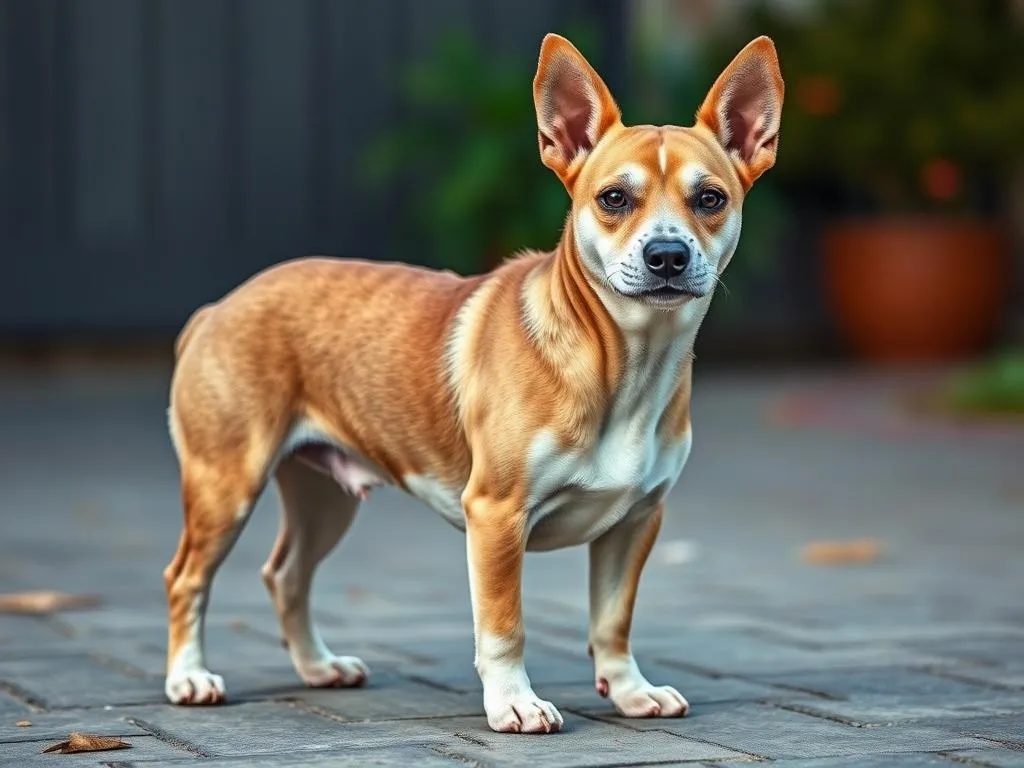
Introduction
Dog breeds exhibit a fascinating diversity, each with unique characteristics that cater to different lifestyles and personalities. Among these breeds, short legged dog breeds stand out for their distinctive physical traits and charming personalities. These breeds often have a unique appearance that is both endearing and practical for various living environments.
Understanding the characteristics and needs of short legged dog breeds is essential for prospective dog owners. This knowledge helps in making informed decisions about care, training, and lifestyle compatibility. In this article, we’ll delve into popular short legged dog breeds, exploring their traits, benefits, and how to care for them.
Characteristics of Short Legged Dog Breeds
Physical Traits
Short legged dog breeds are characterized by their short stature, with legs that are proportionately smaller compared to their body. This unique morphology affects their overall appearance, giving them a charming, often comical look. Common coat types among these breeds can vary widely, from the sleek fur of a Dachshund to the wiry coat of a Scottish Terrier. Colors range from solid shades to intricate patterns, adding to their visual appeal.
Temperament
Generally, short legged dog breeds are known for their affectionate and playful nature. Many of these breeds are eager to please, making them excellent companions. However, some can display stubbornness, which may require consistent training efforts. Their personalities can vary widely; while some may be laid-back and easygoing, others can be energetic and mischievous, making it essential for owners to understand the specific breed traits.
Health Considerations
While charming, short legged dog breeds can be prone to certain health issues, primarily due to their body structure. Common problems include back issues, particularly in breeds with elongated bodies like the Dachshund. Regular veterinary check-ups are crucial for early detection and management of potential health concerns, ensuring a long and healthy life for these beloved pets.
Popular Short Legged Dog Breeds
Dachshund
The Dachshund, known as the “wiener dog,” has a rich history as a hunting dog, originally bred to chase badgers and other small game. They come in two sizes: standard and miniature, with the primary difference being their weight. Dachshunds are playful and affectionate but can also be somewhat stubborn, necessitating patient training. Their unique elongated bodies and short legs require special attention to avoid back injuries, especially during play.
Corgi (Pembroke and Cardigan)
Corgis are beloved for their playful demeanor and distinctive appearance. Both the Pembroke and Cardigan varieties boast short legs and long bodies, but they differ in ear shape and tail presence. Pembrokes typically have docked tails and more fox-like ears, while Cardigans have rounded ears and long, bushy tails. Both types are known for their intelligence and sociable nature, making them excellent family pets. They enjoy regular exercise and mental stimulation to keep them happy and healthy.
Basset Hound
The Basset Hound is renowned for its droopy ears and soulful eyes, originally bred for hunting small game. Their short legs and long body provide a distinct silhouette, and they possess an exceptional sense of smell. Basset Hounds are gentle and friendly, often forming strong bonds with their families. However, they can be prone to obesity, so a balanced diet and regular exercise are vital for maintaining their health.
Bulldog
The Bulldog is a breed celebrated for its loose, wrinkled skin and stocky build. Originally bred for bull-baiting, Bulldogs are now known for their calm demeanor and loyalty. Their short legs contribute to a robust appearance, but they can face several health challenges, including respiratory issues due to their brachycephalic nature. Regular vet visits and a healthy lifestyle can help manage these concerns, ensuring your Bulldog remains happy and active.
Scottish Terrier
The Scottish Terrier, often referred to as the “Scottie,” has a rich history as a hunting dog. With a distinctive wiry coat and a confident demeanor, they are known for their spirited personality. Scotties are intelligent and independent, which can sometimes translate into stubbornness during training. Regular grooming is essential to maintain their coat, and they may be prone to certain health issues, including bladder cancer and skin problems.
Benefits of Owning a Short Legged Dog Breed
Size and Space Requirements
One of the primary advantages of short legged dog breeds is their adaptability to smaller living spaces. These breeds are often well-suited for apartment living, as their smaller size allows them to thrive in limited areas. Their lower energy levels compared to larger breeds mean that they can be perfectly content with a cozy corner in your home.
Exercise Needs
While short legged dog breeds may not require as much exercise as larger breeds, they still benefit from regular physical activity. Short walks, play sessions, and interactive games are excellent ways to keep them engaged. Activities such as fetch or agility training can also be fun for both the dog and the owner, promoting physical fitness and mental stimulation.
Companionship and Family Dynamics
Short legged breeds often form strong bonds with their families, making them excellent companions. Their friendly and affectionate nature allows them to fit seamlessly into family life, whether it’s playing with children or providing comfort to seniors. Their ability to connect with humans enriches the household dynamic, creating lasting relationships.
Training and Socialization
Basic Training Tips
Training is crucial for all dogs, but especially for short legged dog breeds that may exhibit stubborn tendencies. Early socialization is important to ensure they are comfortable around other animals and people. Positive reinforcement techniques, such as treats and praise, work well for these breeds. Short, consistent training sessions are often more effective than lengthy ones, keeping their attention focused.
Common Behavioral Challenges
Stubbornness can be a common challenge with short legged breeds. Strategies to overcome this include setting clear boundaries and being patient during training. Consistent routines and positive reinforcement can help in teaching desired behaviors. Additionally, redirecting their attention during unwanted behaviors can be effective in managing challenges.
Socialization with Other Dogs
Socialization is vital for short legged dog breeds, particularly when interacting with larger dogs. Gradual introductions, utilizing positive reinforcement, and ensuring the environment is calm can help alleviate any fears or anxieties. Early exposure to various situations, environments, and other pets can foster confidence and good behavior in social settings.
Grooming and Care
Grooming Needs
Grooming requirements can vary among short legged dog breeds. For instance, Dachshunds may need regular brushing to manage shedding, while Scotties require more extensive grooming to maintain their wiry coat. Regular nail trimming, ear cleaning, and dental hygiene are essential across all breeds to maintain overall health. Investing in appropriate grooming tools can make this process smoother and more enjoyable.
Diet and Nutrition
Nutritional needs for short legged dog breeds can differ based on their size and activity level. A well-balanced diet of high-quality dog food is essential for maintaining their health. Owners should monitor their dog’s weight closely, as many short legged breeds are prone to obesity. Consulting with a veterinarian can help tailor a suitable diet plan for your pet.
Regular Health Check-ups
Routine veterinary visits are crucial for the well-being of short legged dog breeds. Regular check-ups can help detect health issues early and ensure your dog is up to date on vaccinations. Common tests may include screenings for hip dysplasia, back problems, and other breed-specific conditions. Maintaining a schedule for health check-ups can significantly impact your dog’s quality of life.
Conclusion
Owning a short legged dog breed can bring immense joy and companionship, along with unique challenges. Understanding their specific characteristics, care requirements, and health considerations is crucial for providing the best environment for these lovable pets. Whether it’s the playful nature of a Corgi or the loyal demeanor of a Bulldog, each breed offers distinct traits that can enrich your life. Before adopting, consider how these characteristics fit into your lifestyle, ensuring a harmonious bond between you and your furry friend.
Short legged dog breeds have a special place in the hearts of many dog lovers. They remind us that love and companionship come in all shapes and sizes, making them cherished family members for those lucky enough to welcome them into their homes.









